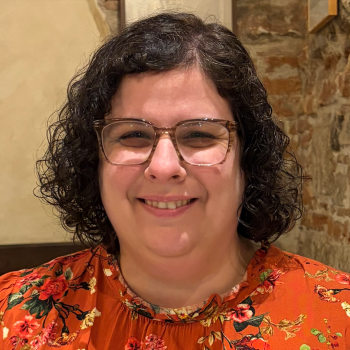

Daphna Harel
Associate Professor of Applied Statistics; Director of A3SR MS Program
Applied Statistics, Social Science, and Humanities
Daphna Harel (she/her) is an applied statistician who studies issues of measurement and modeling in the applied health sciences. Her research focuses on modeling challenges for data arising from self-reported questionnaires and other surveys, as well as other modern forms of data collection. Her methodological work focuses on the creation of theoretically justified guidelines for statistical analysis and issues of model misspecification in polytomous Item Response Theory, shortening patient reported outcome measures, and measures of effect size for differential item functioning. Her applied work centers around the use of advanced statistical methods to answer critical questions in the social and health sciences. She collaborates with researchers across numerous fields and publishes in scientific journals in both statistics and in the applications of her work.
Her most recent work is in improving statistical practice as it pertains to LGBTQIA+ individuals and their data, as well as improving societal outcomes for members of this community. She currently PI's the NYU QUEER data lab.
Daphna is on the steering committee for the DEPRESSD project and works closely with the Scleroderma Patient-centered Intervention Network to provide statistical support.
Harel received her PhD from the Department of Mathematics and Statistics at McGill University.
Selected Publications
For a list of my published works, see my google scholar profile. I am also happy to share the most up-to-date version of my CV by email.
Some recent manuscripts include:
- Comparison of Patient Health Questionnaire-9, Edinburgh Postnatal Depression Scale and Hospital Anxiety and Depression - Depression subscale scores by administration mode: An individual participant data differential item functioning meta-analysis
- Portable technology for postural control measurement: Comparing head position with center of pressure data
- Examining the relationship between multiple tests of receptive vocabulary.
- Differential Item Functioning on the Cochin Hand Function Scale among People with Systemic Sclerosis by Language, Sex, and Disease Subtype: a Scleroderma Patient-centered Intervention Network (SPIN) Cohort Study
- External Validation of a Shortened Screening Tool Using Individual Participant Data Meta Analysis: a Case Study of the Patient Health Questionnaire-Dep-4
- Identifiability and estimation under the test-negative design with population controls with the goal of identifying risk and preventive factors for SARS-CoV-2 infection
